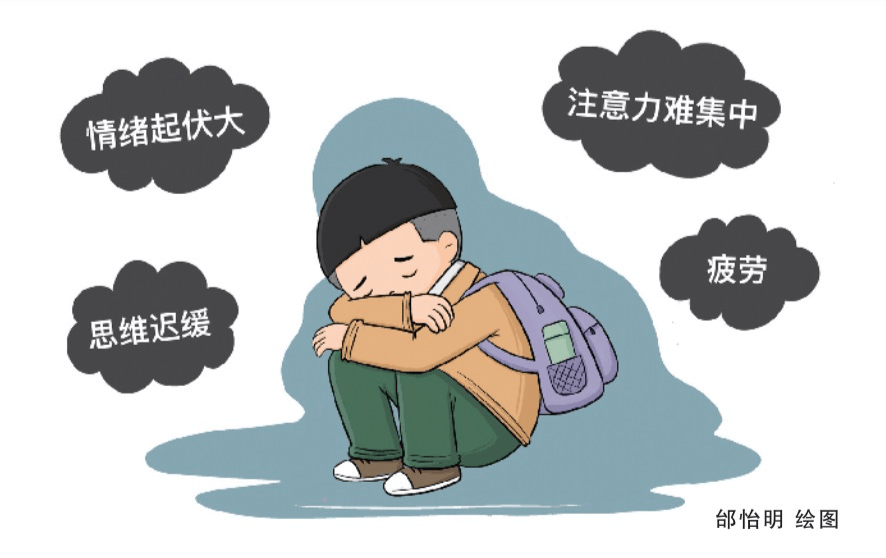In recent years, with the increasing attention to the topic of adolescent mental health in society, “depression” is no longer a distant and unfamiliar term.
Actually, temporary bad moods are different from the extent and treatment of pathological depression. What should parents do when a child’s emotions fluctuate? How to properly guide children? Let’s take a look at the suggestions of Sun Xiaomei, Deputy Secretary-General of the Psychological Crisis Intervention Working Committee of the Chinese Psychological Society!
01. Depressed moods are different from depression.
A large amount of research results show that improper handling of mental health issues before adolescence can hinder the development of brain development, learning ability and motivation, social interaction, self-esteem, and confidence during adolescence, which can lead to hindered physical and psychological development in adulthood.
Depressed moods and depression are very different; most people may experience the former at some point, as it is a temporary state, while depression is a diagnosis of mental illness that requires judgment based on the severity within a larger framework of depression.
02. Common Symptoms of Depression
Common symptoms of depression in children and adolescents include feeling or appearing depressed, sad, tearful, or irritable, with large mood swings; decreased interest in things previously enjoyed; reduced time spent with friends or in extracurricular activities; changes in appetite or weight; more or less sleep than usual; appearing tired or feeling fatigued, or decreased energy; feeling that everything is one’s fault or feeling incompetent; decreased concentration; less concern for school or decreased performance; slow thinking; suicidal thoughts or attempts; interest in literary works, movies, games, idol worship, social media, among others, related to themes of meaninglessness.
Children may also display disobedience and more physical discomfort, such as frequent headaches or stomach aches; adolescents may have frequent conflicts, disputes, or avoidance of communication with teachers and adults. Depressed adolescents may use alcohol, other drugs, or overuse electronic devices, masturbation, or sexual activity to make themselves feel better, and some may even demonstrate paranoid delusions, auditory hallucinations, and more.
03. Causes of Depressed Moods and Depression
Depressed moods usually have specific triggering events, such as failure in pre-college exams or unrequited love, with an impact lasting generally within two weeks, gradually diminishing or disappearing over time, and usually without a significant impact on daily life.
Depression does not have clear external triggers, or under the influence of external triggers, lasts too long or reacts too strongly, lasting for more than two weeks and having a significant impact on life, schoolwork, social life, and family, leading to feelings of inferiority, lack of interest in everything, suicidal thoughts or attempts, with no clear improvement even after self-regulation.
If a person suffers from depression, their inner experience and health condition are very different; for instance, they may feel that many situations in life are hopeless, have particularly negative emotions, feel like there’s no way out, including having unresolved issues from the past.
Cases of suicide due to depression are unlikely to be caused by a single sudden event leading to a depressive episode, usually because of early experiences of many things, even though they may have coping mechanisms, lacking professional help prevents them from effectively overcoming the depressive state, not knowing they have different choices.
04. What should parents do?
If a child is truly in a depressive state, parents must show understanding and work together with professionals to provide real help and help the child overcome it.
If a child shows common signs of depression, it is best to seek treatment at a specialized psychiatric hospital or other mental health institution with psychiatric facilities as soon as possible. If possible, choose a psychiatrist specializing in children and adolescents. After receiving professional diagnosis and treatment advice, regular follow-ups are essential, along with psychological therapy.
Source: Beijing Family Education Research Association
【Parent Classroom】Attention Parents! How to Determine Whether Your Child Has Depressive Mood or Depression? Experts Say This →


